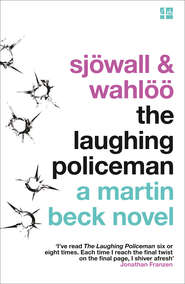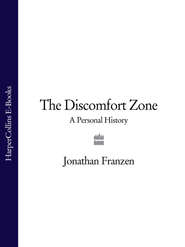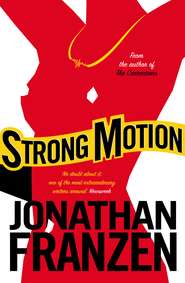По всем вопросам обращайтесь на: info@litportal.ru
(©) 2003-2024.
✖
Freedom
Настройки чтения
Размер шрифта
Высота строк
Поля
Patty minded his ridiculing less when her mother was the butt of it.
“I mean, you saw those people,” he said to her. “Jesus Christ. El ron me puso loco.”
An important fact about Ray’s family was that it had a lot of money. His mom and dad lived on a big ancestral estate out in the hills of northwest New Jersey, in a pretty stone Modernist house that was supposedly designed by Frank Lloyd Wright and was hung with minor works by famous French Impressionists. Every summer, the entire Emerson clan gathered by the lake at the estate for holiday picnics which Patty mostly failed to enjoy. Her granddad, August, liked to grab his oldest granddaughter around the belly and sit her down on his bouncing thigh and get God only knows what kind of little thrill from this; he was certainly not very respectful of Patty’s physical boundaries. Starting in seventh grade, she also had to play doubles with Ray and his junior partner and the partner’s wife, on the grandparental clay tennis court, and be stared at by the junior partner, in her exposing tennis clothes, and feel self-conscious and confused by his ocular pawing.
Like Ray himself, her granddad had bought the right to be privately eccentric by doing good public legal works; he’d made a name for himself defending high-profile conscientious objectors and draft evaders in three wars. In his spare time, which he had much of, he grew grapes on his property and fermented them in one of his outbuildings. His “winery” was called Doe Haunch and was a major family joke. At the holiday picnics, August tottered around in flipflops and saggy swim trunks, clutching one of his crudely labeled bottles, refilling the glasses that his guests had discreetly emptied into grass or bushes. “What do you think?” he asked. “Is it good wine? Do you like it?” He was sort of like an eager boy hobbyist and sort of like a torturer intent on punishing every victim equally. Citing European custom, August believed in giving children wine, and when the young mothers were distracted with corn to shuck or competitive salads to adorn, he watered his Doe Haunch Reserve and pressed it on kids as young as three, gently holding their chins, if necessary, and pouring the mixture into their mouths, making sure it went down. “You know what that is?” he said. “That’s wine.” If a child then began to act strangely, he said: “What you’re feeling is called being drunk. You drank too much. You’re drunk.” This with a disgust no less sincere for being friendly. Patty, always the oldest of the kids, observed these scenes with silent horror, leaving it to a younger sibling or cousin to sound the alarm: “Granddaddy’s getting the little kids drunk!” While the mothers came running to scold August and snatch their kids away, and the fathers tittered dirtily about August’s obsession with female deer hindquarters, Patty slipped into the lake and floated in its warmest shallows, letting the water stop her ears against her family.
Because here was the thing: at every picnic, back up in the kitchen of the stone house, there was always a bottle or two of fabulous old Bordeaux from August’s storied cellar. This wine was put out at Patty’s father’s insistence, at unknown personal cost of wheedling and begging, and it was always Ray who gave the signal, the subtle nod, to his brothers and to any male friend he’d brought along, to slip away from the picnic and follow him. The men returned a few minutes later with big bubble-bowled glasses filled to the brim with an amazing red, Ray also carrying a French bottle with maybe one inch of wine left in it, to be divided among all the wives and other less favored visitors. No amount of pleading could induce August to fetch another bottle from his cellar; he offered, instead, more Doe Haunch Reserve.
And it was the same every year at Christmastime: the grandparents driving over from New Jersey in their late-model Mercedes (August traded in his old one every year or two), arriving at Ray and Joyce’s overcrowded ranch house an hour before the hour that Joyce had implored them not to arrive before, and distributing insulting gifts. Joyce famously, one year, received two much-used dish towels. Ray typically got one of those big art books from the Barnes & Noble bargain table, sometimes with a $3.99 sticker still on it. The kids got little pieces of plastic Asianmade crap: tiny travel alarm clocks that didn’t work, coin purses stamped with the name of a New Jersey insurance agency, frightening crude Chinese finger puppets, assorted swizzle sticks. Meanwhile, at August’s alma mater, a library with his name on it was being built. Because Patty’s siblings were outraged by the grandparental tightfistedness and compensated by making outrageous demands for parental Christmas booty—Joyce was up until 3 a.m. every Christmas Eve, wrapping presents selected from their endless and highly detailed Christmas lists—Patty went the other way and decided not to care about anything but sports.
Her granddad had once been a true athlete, a college track star and football tight end, which was probably where her height and reflexes came from. Ray also had played football but in Maine for a school that could barely field a team. His real game was tennis, which was the one sport Patty hated, although she was good at it. She believed that Björn Borg was secretly weak. With very few exceptions (e.g., Joe Namath) she wasn’t impressed with male athletes in general. Her specialty was crushes on popular boys enough older or better-looking to be totally unrealistic choices. Being a very agreeable person, however, she went on dates with practically anybody who asked. She thought shy or unpopular boys had a hard life, and she took pity on them insofar as humanly possible. For some reason, many were wrestlers. In her experience, wrestlers were brave, taciturn, geeky, beetle-browed, polite, and not afraid of female jocks. One of them confided to her that in middle school she’d been known to him and his friends as the She-Monkey.
As far as actual sex goes, Patty’s first experience of it was being raped at a party when she was seventeen by a boarding-school senior named Ethan Post. Ethan didn’t do any sports except golf, but he had six inches of height and fifty pounds on Patty and provided discouraging perspectives on female muscle strength as compared to men’s. What he did to Patty didn’t strike her as a gray-area sort of rape. When she started fighting, she fought hard, if not too well, and only for so long, because she was drunk for one of the first times ever. She’d been feeling so wonderfully free! Very probably, in the vast swimming pool at Kim McClusky’s, on a beautiful warm May night, Patty had given Ethan Post a mistaken impression. She was far too agreeable even when she wasn’t drunk. In the pool, she must have been giddy with agreeability. Altogether, there was much to blame herself for. Her notions of romance were like Gilligan’s Island: “as primitive as can be.” They fell somewhere between Snow White and Nancy Drew. And Ethan undeniably had the arrogant look that attracted her at that point in time. He resembled the love interest from a girls’ novel with sailboats on the cover. After he raped Patty, he said he was sorry “it” had been rougher than he’d meant “it” to be, he was sorry about that.
It was only after the piña coladas wore off, early the next morning, in the bedroom which, being such an agreeable person, Patty shared with her littler sister so that their middle sister could have her own room to be Creative and messy in: only then did she get indignant. The indignity was that Ethan had considered her such a nothing that he could just rape her and then take her home. And she was not such a nothing. She was, among other things, already, as a junior, the all-time single-season record holder for assists at Horace Greeley High School. A record she would again demolish the following year! She was also first-team All State in a state that included Brooklyn and the Bronx. And yet a golfing boy she hardly even knew had thought it was OK to rape her.
To avoid waking her little sister, she went and cried in the shower. This was, without exaggeration, the most wretched hour of her life. Even today, when she thinks of people who are oppressed around the world and victims of injustice, and how they must feel, her mind goes back to that hour. Things that had never occurred to her before, such as the injustice of an oldest daughter having to share a room and not being given Eulalie’s old room in the basement because it was now filled floor to ceiling with outdated campaign paraphernalia, also the injustice of her mother being so enthralled about the middle daughter’s thespian performances but never going to any of Patty’s games, occurred to her now. She was so indignant she almost felt like talking to somebody. But she was afraid to let her coach or teammates know she’d been drinking.
How the story came out, in spite of her best efforts to keep it buried, was that Coach Nagel got suspicious and spied on her in the locker room after the next day’s game. Sat Patty down in her office and confronted her regarding her bruises and unhappy demeanor. Patty humiliated herself by immediately and sobbingly confessing to all. To her total shock, Coach then proposed taking her to the hospital and notifying the police. Patty had just gone three-for-four with two runs scored and several outstanding defensive plays. She obviously wasn’t greatly harmed. Also, her parents were political friends of Ethan’s parents, so that was a nonstarter. She dared to hope that an abject apology for breaking training, combined with Coach’s pity and leniency, would put the matter to rest. But oh how wrong she was.
Coach called Patty’s house and got Patty’s mother, who, as always, was breathless and running out to a meeting and had neither time to talk nor yet the moral wherewithal to admit that she didn’t have time to talk, and Coach spoke these indelible words into the P.E. Dept.’s beige telephone: “Your daughter just told me that she was raped last night by a boy named Ethan Post.” Coach then listened to the phone for a minute before saying, “No, she just now told me … That’s right … Just last night … Yes, she is.” And handed Patty the telephone.
“Patty?” her mother said. “Are you—all right?”
“I’m fine.”
“Mrs. Nagel says there was an incident last night?”
“The incident was I was raped.”
“Oh dear, oh dear, oh dear. Last night?”
“Yes.”
“I was home this morning. Why didn’t you say something?”
“I don’t know.”
“Why, why, why? Why didn’t you say something to me?”
“Maybe it just didn’t seem like such a big deal right then.”
“So but then you did tell Mrs. Nagel.”
“No,” Patty said. “She’s just more observant than you are.”
“I hardly saw you this morning.”
“I’m not blaming you. I’m just saying.”
“And you think you might have been … It might have been …”
“Raped.”
“I can’t believe this,” her mother said. “I’m going to come and get you.”
“Coach Nagel wants me to go to the hospital.”
“Are you not all right?”
“I already said. I’m fine.”
“Then just stay put, and don’t either of you do anything until I get there.”
Patty hung up the phone and told Coach that her mother was coming.
“We’re going to put that boy in jail for a long, long time,” Coach said.
“Oh no no no no no,” Patty said. “No, we’re not.”
“Patty.”
“It’s just not going to happen.”
“It will if you want it to.”
“No, actually, it won’t. My parents and the Posts are political friends.”
“Listen to me,” Coach said. “That has nothing to do with anything. Do you understand?”
Patty was quite certain that Coach was wrong about this. Dr. Post was a cardiologist and his wife was from big money. They had one of the houses that people such as Teddy Kennedy and Ed Muskie and Walter Mondale made visits to when they were short of funds. Over the years, Patty had heard much tell of the Posts’ “back yard” from her parents. This “back yard” was apparently about the size of Central Park but nicer. Conceivably one of Patty’s straight-A, grade-skipping, Arts-doing sisters could have brought trouble down on the Posts, but it was absurd to imagine the hulking B-student family jock making a dent in the Posts’ armor.
“I’m just never going to drink again,” she said, “and that will solve the problem.”
“Maybe for you,” Coach said, “but not for somebody else. Look at your arms. Look what he did. He’ll do that to somebody else if you don’t stop him.”
“It’s just bruises and scratches.”
Coach here made a motivational speech about standing up for your teammates, which in this case meant all the young women Ethan might ever meet. The upshot was that Patty was supposed to take a hard foul for the team and press charges and let Coach inform the New Hampshire prep school where Ethan was a student, so he could be expelled and denied a diploma, and that if Patty didn’t do this she would be letting down her team.
Patty began to cry again, because she would almost rather have died than let a team down. Earlier in the winter, with the flu, she’d played most of a half of basketball before fainting on the sideline and getting fluids intravenously. The problem now was that she hadn’t been with her own team the night before. She’d gone to the party with her field-hockey friend Amanda, whose soul was apparently never going to be at rest until she’d induced Patty to sample piña coladas, vast buckets of which had been promised at the McCluskys’. El ron me puso loca. None of the other girls at the McCluskys’ swimming pool were jocks. Almost just by showing up there, Patty had betrayed her real true team. And now she’d been punished for it. Ethan hadn’t raped one of the fast girls, he’d raped Patty, because she didn’t belong there, she didn’t even know how to drink.
She promised Coach to give the matter some thought.
It was shocking to see her mother in the gym and obviously shocking to her mother to find herself there. She was wearing her everyday pumps and resembled Goldilocks in daunting woods as she peered around uncertainly at the naked metal equipment and the fungal floors and the clustered balls in mesh bags. Patty went to her and submitted to embrace. Her mother being much smaller of frame, Patty felt somewhat like a grandfather clock that Joyce was endeavoring to lift and move. She broke away and led Joyce into Coach’s little glass-walled office so that the necessary conference could be had.
“Hi, I’m Jane Nagel,” Coach said.
















